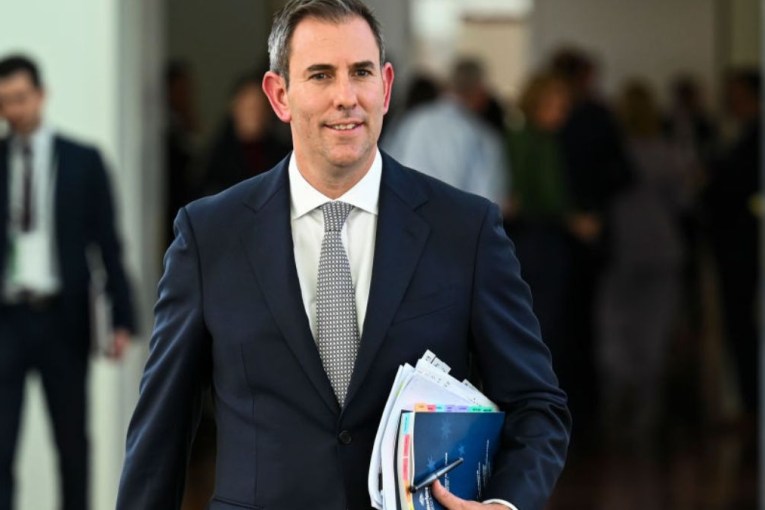Michael Pascoe: More rubbish about taxing super than you’ll find at the tip

Don’t worry, the earnings on really serious money won’t be taxed at 30 per cent inside super.
It isn’t taxed that highly outside super, either.
Even the merely wealthy, the couples typically with several million dollars between them in a self-managed super fund, are unlikely to pay the full 30 per cent on the earnings of their joint funds in excess of $6 million once they’ve juggled a bit, carried one, added two and divided by the number you first thought of.
There may be a few high earners paying the much headlined rate, but they’ll barely notice it and will still be advised by their accountants that contributing as much to super as they comfortably can remains about the best tax break going.
(Yes, the tax-free capital gains when you sell the family home is nice, but remember the mortgage interest, renovation and maintenance costs haven’t been deductible, transaction costs are steep, it hasn’t been paying any dividend other than shelter along the way, it’s not exactly liquid, it’s a big bet on a single asset in a single location, and you still have to buy something else to live in – never mind what might happen to the valuation if the Comancheros move in next door and/or the property behind is rezoned for a 20-storey tower but yours is not. “Owner-occupied” house flipping can be different – I’ll come to that.)
Quite simply, there is more rubbish being tossed around about tax on super than you could find at a tip.
A small policy improvement
Most of it is political – the Coalition’s dishonest, rather desperate and generally despicable attempt to make something out of a bugger-all tweak, a small policy improvement, in fact.
That, in turn, is magnified by the usual media suspects through a mixture of bias, ignorance and venal click baiting/gotcha grab journalism.
As for the politics, shadow treasurer Angus Taylor added another ribbon to his chest of medals for stupidity with his line that the policy adjustment was “an attack on middle Australia”.
Middle Australia should be so lucky.
Apparently Angus doesn’t get out much.
On the other hand, Anthony Albanese has the potential for the best pitch of his prime ministership if he’s prepared to adopt a line from Grattan Institute economic policy program senior associate, Joey Maloney:
“If 30 per cent is good enough for someone making $50,000 a year working in a retail shop, then it’s good enough for a retiree with three million bucks in super.”

Shadow treasurer Angus Taylor says the government has “no mandate” to tax superannuation. Photo: AAP
But back to the big picture. (You know I love the big picture.)
In or out of superannuation, the serious money isn’t made by wages and salaries. It is made by capital gains on investments.
Gina Rinehart isn’t rich on the salary she pays herself, but on the increase in value of her companies – and there’s no tax at all on capital gains until they are realised, and then it is cheap.
The serious money is made by capital gains on investments.
The Catch-22 here is that you have to have serious money to make serious money, but once you have serious money, it’s almost hard not to make more serious money.
I had a slash some years ago at a particularly naff Australian Financial Review whinge about Australia’s allegedly “very progressive tax and transfer system” placing an increasing burden “onto a relatively small number of wealth creators”.
That was in 2017, when the newspaper’s rich list boasted that the number of Australian billionaires had jumped from just two to 60 over the previous three decades. More have been added since.
The AFR’s pitch hasn’t changed in the slightest.
Joke on ‘middle Australia’
The joke on “middle Australia” (listen up, Angus, you might learn something) is that the Howard/Costello government, supported by Labor, halved the tax on capital gains.
The neo-liberal nonsense at the time was that halving the tax on investment profits would spark a golden age of productivity-enhancing investment in Australian business.
Instead, it sparked a frenzy of real estate speculation and the rise of Landlord Australia, taking the percentage of us with investment properties from about 5 per cent to 15 per cent while governments abrogated their public housing responsibilities.
So a tradie working on a building site earning, say, $100,000 this year will be paying a marginal tax rate of 32.5 per cent. A casual labourer who picks up a few days and averages $900 a week also has a marginal rate of 32.5 per cent.

Superannuation balances vary for different classes. Labor argue their changes make taxation of it more fair. Photo: Getty
Meanwhile, the speculator/investor individual selling the project after one-year-and-one-day will pay a maximum of 22.5 per cent on cents in the dollar no matter how big the profit – $1 million, $10 million, $100 million, doesn’t matter. It is not progressive taxation.
(I’m ignoring the Medicare levy both pay to keep the numbers simple.)
Similarly, the serious and merely wealthy money within superannuation gets a discount on capital gains.
Not the 50 per cent outside super, but still a nice 33.33 per cent.
The present 15 per cent marginal tax within super is only 10 per cent when the profit comes from selling shares or other assets – which is what fat super funds do from time to time.
With no word to the contrary, Labor’s 30 per cent proposal will mean capital gains tax within super of 20 per cent. See what I mean about the full 30 per cent being unlikely?
Remember franking credits?
And then there are the franking credits. Oh yes, remember them?
They were meant to stop “double taxation”, but in the hands of the tax minimisation industry “arranging affairs”, it has effectively resulted in no taxation in the hand of superannuants.
In rough round terms, the franking credits on shares in a super fund add about 40 per cent to the value of fully-franked dividends.
A 30 per cent marginal tax rate on super funds heavily over-weight Australian dividend-paying stocks (as SMSFs tend to be, responding to the tax incentive), meaning the fund is still unlikely to pay much income tax come pension phase.
Bottom line: The proposed 30 per cent marginal tax rate earned by the proportion of someone’s super fund above $3 million merely levels the playing field a little, but said field still remains heavily tilted in favour of those who already have the money.
Exploiting a tax loophole
The family home being capital gains tax free? For most folks it isn’t a big deal but it collectively adds up to a big deal for the nation.
And, by the nature of people who will exploit a tax loophole, a quick real world example in big round numbers not far from where I live:
Person bought a house for $4.5 million, gained permission (beyond most locals’ expectations) to cut down some trees and thereby create a second block on the site. (New owner had played this game before and knew a bit.)
Owner is selling the original house for $4 million (after occupying it for more than a year) while building on the second block, spending maybe $4 million on the build (it’s that sort of house and suburb).
When finished, the properties will sell for about $11.5 million, maybe more – and a tax-free profit of about $3 million. Not bad, eh?
This sort of house-flipping is what the owner does. The tax system encourages it.
Of course, to make this sort of money, you have to have the sort of money that allows you a seat at the table.
But, hey, the capital-gains-tax-free family home is an article of political faith.
Ah, “middle Australia”.








